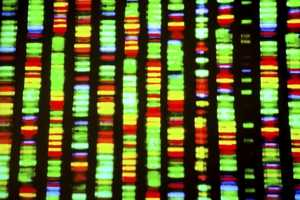Genetic Testing for Lynch Syndrome

Different types of genetic testing for Lynch syndrome are available, depending on whether a mutation has been identified in the family and whether colon tumor tissue is available. This information may help you understand your patient’s genetic testing results.
- Tumor testing is usually performed on tumor tissue from colon cancer patients when the genetic mutation in the family has not been identified. A positive tumor test result is followed by germline testing of genes indicated by tumor testing results to identify the causative mutation.
- If tumor tissue is not available and no genetic mutation has been identified in the family, comprehensive testing of the MLH1, MSH2, MSH6, PMS2, and EPCAM genes can be performed. If possible, this testing should be done on a family member who has had a Lynch syndrome-related cancer.
- When the genetic mutation in the family has been identified, single-site testing is done to look only for the presence of that specific mutation. Targeted testing can save money and time.
Some patients have a family health history that is consistent with more than one cancer syndrome, such as early-onset breast, ovarian, and colon cancer. For these patients, multigene panels are available that test for mutations in genes from different syndromes, including HBOC and Lynch syndrome. Panels have pros (they may be a better choice for people whose personal and family history is consistent with more than one cancer syndrome), and cons (increased chance of variants of uncertain significance). As with all genetic testing, genetic counseling should accompany testing. Consult a genetic counselor to better understand your patient’s genetic test results.
Screening and Early Detection for High-Risk Patients with Lynch Syndrome
About 3% of people with colorectal cancer have an autosomal dominant inherited condition known as Lynch syndrome (also called hereditary nonpolyposis colorectal cancer, or HNPCC). In addition to an increased risk of colorectal cancer, women with Lynch syndrome have an increased risk of uterine and ovarian cancer.
Lynch syndrome carriers should receive colonoscopies at 1- or 2-year intervals starting at age 20 to 25 to reduce the incidence of colorectal cancer by about 60%.
There is limited high-quality evidence on what to do about endometrial and ovarian cancer risk in Lynch syndrome carriers, but consensus-based recommendations say1—
- There is no clear evidence to support screening for endometrial cancer, but annual endometrial sampling is an option beginning at around age 30 to 35.2
- Patients should consider hysterectomy and bilateral salpingo-oophorectomy at completion of childbearing.
- Patients should be educated that dysfunctional uterine bleeding warrants prompt attention.
References
1Lindor NM, Petersen GM, Hadley DW, Kinney AY, Miesfeldt S, Lu KH, Lynch P, Burke W, Press N. Recommendations for the care of individuals with an inherited predisposition to Lynch syndrome: a systematic review. JAMA 2006;296(12):1507–1517.
2National Comprehensive Cancer Network. NCCN Guidelines: Genetic/Familial High-Risk Assessment: Colorectal [PDF-913KB] Note: Login required to access.
- Page last reviewed: September 14, 2015
- Page last updated: September 14, 2015
- Content source:


 ShareCompartir
ShareCompartir